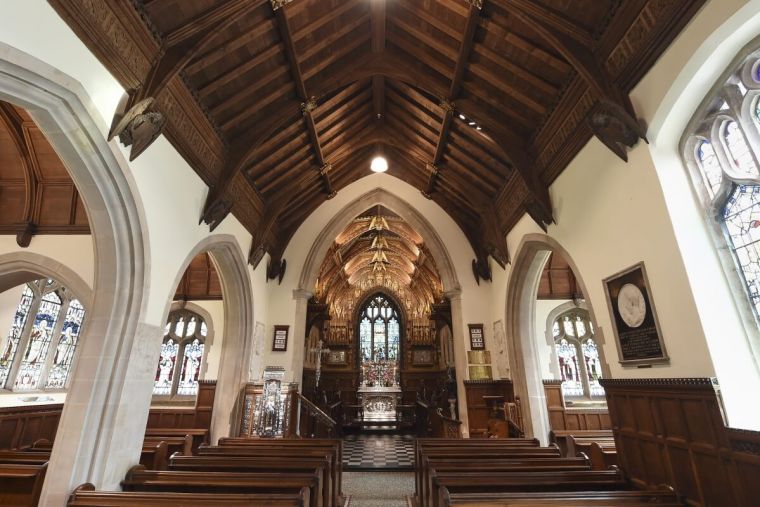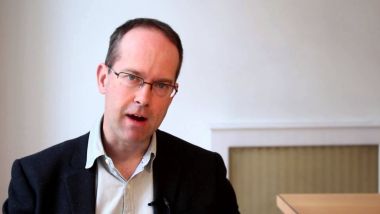Does Britain Have A 'Christian Right' And If So How Successful Is It?

Is there a British equivalent to the 'religious right' in America? If so, how influential is it? And what are its methods?
Further, how should the Church be influencing non-Christians in an increasingly secular age?
These are just some of the questions raised by an article published on the LSE's website and elsewhere by an academic entitled Britain's 'Christian right': seeking solace in a narrative of discrimination.
Steven Kettell, an associate professor in the Department of Politics and International Studies at Warwick University, points out that the US Christian right is enjoying a resurgence under the new presidency of Donald Trump, one in which its influence appears to be renewed as the source of 'religiously inspired policy-making'.
And he acknowledges that, 'Compared to their US counterparts, conservative Christians in Britain are far fewer in number, tend to engage with a different set of issues, are typically more left-of-centre in their economic outlook and have far less political clout.'
Nonetheless, Kettell shines a spotlight on what there is of a conservative Christian movement, albeit a disparate one, in the UK, with a series of anonymous quotes about their methods.
He names the Christian Institute, the Evangelical Alliance, Anglican Mainstream, Christian Concern, Christian Voice, Christian Action Research and Education, the Conservative Christian Fellowship, the Christian Medical Fellowship, Core Issues Trust and the Christian Legal Centre.

Kettell, who says these conservative groups are among the 'more politically active members of British society', makes the revealing point that the groups use secular methods in moral areas.
He says: '[While] conservative Christian groups bemoan the impact of secularisation, this narrative is itself defined by an overtly secular character. In one respect this presents something of a paradox: conservative groups draw heavily on their theological motivations but the public discourse used to support their political activities is grounded in secular norms and values. Opposition to same-sex marriage, for example, was based primarily around claims of historical tradition, the lack of an electoral mandate, and the social problems that (it was said) would invariably result. Theological objections were notably absent from the public case.'
Kettell offers an explanation for this, that it is 'a strategic necessity if conservative Christian groups are to have any hope of appealing to a society that is largely secularised'.
The writer says that the groups are essentially losing the battle, apart from helping create a narrative of 'discrimination' against Christians alongside 'a right-wing news agenda'.
He explains: 'Significant defeats on issues such as abortion, medical science and same-sex marriage, as well as the repeated loss of legal challenges on issues of employment discrimination, all suggest that the political influence of such organisations remains small.'
Yet, Kettell says, from this apparent defeat may come a subtler victory: the appearance of being on the side of the mainstream. 'To the extent that one of the core aims of conservative organisations is to maintain a sense of identity and group cohesion, then a narrative resting on notions of discrimination and decline might not be as ineffective as at first it might appear,' he concludes. 'As one senior figure explained: the objective was to show "ordinary Christian people" that there was someone out there speaking on their behalf, and that, despite claims to the contrary, they were not "swivel-eyed loons".'
Responding to the article, Rev Andrew Symes, the executive secretary of Anglican Mainstream – one of the groups named by Kettell – says it is 'quite fair and balanced'.

Symes says 'yes' to the charge that 'we are losing' the arguments, but points out that this is only on a superficial level: 'I think an answer to that would be that we will be judged ultimately not for whether we "win", but for our faithfulness to what we believe is the truth in the face of forces that want to either extinguish religion or shape it to conform with popular viewpoints,' he tells Christian Today.
And Symes says the article raises a bigger question about the Church and society. 'I do think actually that there is an issue here about the church and its mission in Britain today,' he says. 'The dominant argument in the church seems to be that we are losing people because our views are too old fashioned [and] judgmental...and we need to change our attitude and our message.
'But the counter argument to that is: how is that viewed by ordinary non-Christians? Are they really any more likely to explore the claims of Christ because for example their local church has decided to support same sex marriage? Recent research seems to indicate that conservative churches are more likely to grow, with new converts, than liberal ones. That could be because they are more intentionally evangelistic, but I think the research suggests that it is because people are attracted to clear beliefs which are distinct from what society is saying.'
Symes is doubtless correct here. There is surely a gap in the market today for the Church to stand for the kind of traditional values that are so comprehensively being rejected by all the major political parties at Westminster, where there is a tyranny of social liberalism, and beyond. And the groups' narrative, that they are in an embattled minority, is probably effective in garnering them support among some. But at the same time, it is also worth remembering that many active Christians do not take such an oppositional approach and for them, engaging in the world as it is is as much of a raison d'être as opposing its current trends.











